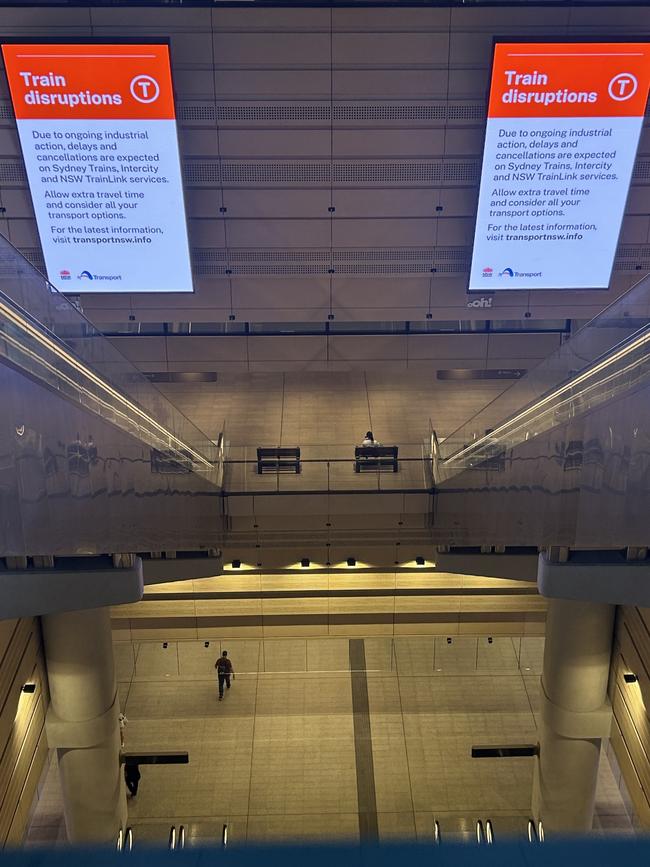Unions ‘wreaking havoc’ on government’s finances, says former Premier
Former Premier Barry O’Farrell, who legislated a wages cap to keep public finances under control, says the cap’s removal under Chris Minns has led to unions ‘wreaking havoc’.
NSW
Don't miss out on the headlines from NSW. Followed categories will be added to My News.
Former premier Barry O’Farrell says scrapping the wages cap has brought back 1970s-style industrial disputes, with unions holding the Minns government to “ransom”.
Mr O’Farrell legislated the wages cap after the 2012 election. Speaking to The Saturday Telegraph in the wake of the rail union’s wage dispute that crippled the train network this week, he said that the cap simply put into law a wages policy that began under Labor treasurer Michael Costa.
That policy capped wages, but allowed unions to argue for pay rises if they could promise savings.
Mr O’Farrell said the cap he legislated ensured that savings measures were put in place before increases above a set rate were provided.
He said that removing the cap has allowed unions to wreak havoc with the government’s finances.

“In the face of (unions’) refusal to acknowledge the need to ensure the state has responsible finances, (the Minns government) is just being held ransom,” he said.
Mr O’Farrell said removing the wages cap had brought back ambit pay claims not seen for 50 years.
“I thought the days of people asking for 15 and 20 and 30 per cent pay increases stopped in the ’70s, so I’m feeling very old,” he said.

“Unions, who are affiliated with the Labor Party, are wreaking havoc on a government that, by and large, has been doing very well.”
Rail services were slowly getting back to normal on Friday, after the Fair Work Commission imposed a temporary pause on industrial action from the Rail, Tram and Bus Union.
About 90 per cent of suburban services were running on time, but intercity services were still experiencing delays and cancellations.
However, Transport Minister Jo Haylen said the work bans had imposed a “maintenance backlog” that needed to be prioritised to make services “reliable and available” for commuters.
In a statement, the RTBU said rail unions would present the government with a “counter offer”.
However, the Saturday Telegraph understands union leaders have yet to land on a specific proposal to put to government.
“If the unions have a counter offer that goes to wages and conditions, if they put that in writing, we would, of course, consider it,” Ms Haylen said.
Rail unions have never been subject to the wages cap, and fall under the federal industrial relations system.
Industrial action has been put on pause until the Fair Work Commission considers a government application to have the work bans thrown out due to their impact on the economy.
Despite having the power to end the industrial action that sent the train network into meltdown on Wednesday, Federal Workplace Relations Minister Murray Watt yesterday said he would not intervene.
“There’s no need for a federal government to be intervening … to be duplicating something that the state government is already doing by taking this matter to the commission,” he said.
Do you have a story for The Daily Telegraph? Message 0481 056 618 or email tips@dailytelegraph.com.au




